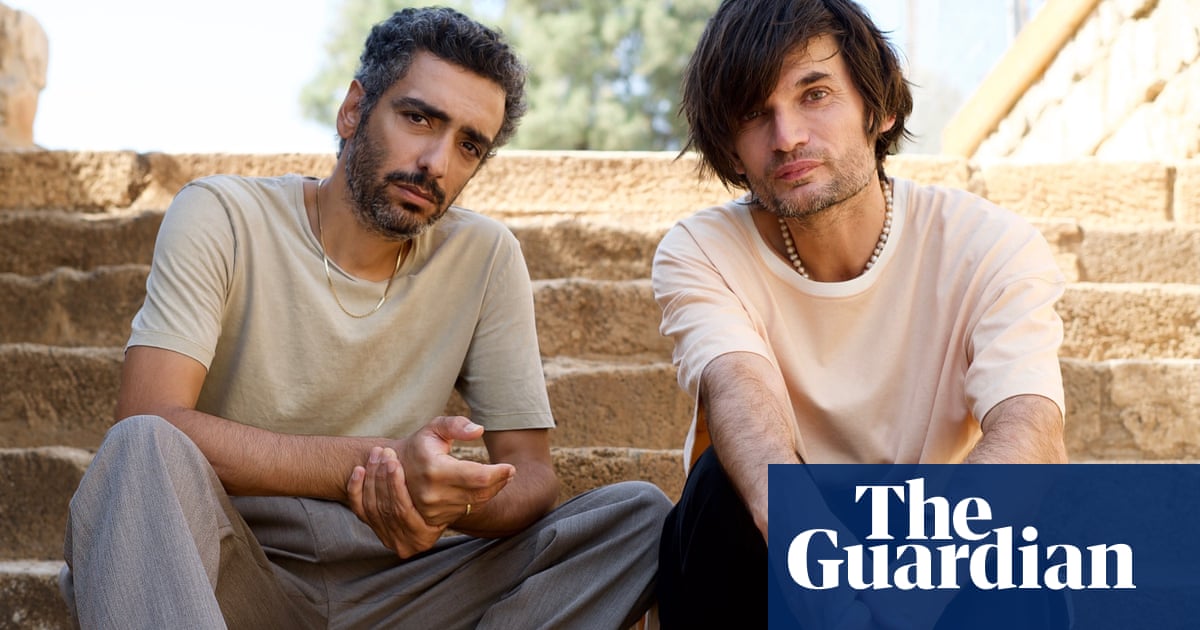After the cancellation of two UK performances with the Israeli musician Dudu Tassa, Radiohead’sJonny Greenwoodhas said that they “dread the weaponisation of this cancellation by reactionary figures as much as we lament its celebration by some progressives”.
In a statement, Greenwood and Tassa said that venues in London and Bristol as well as “their blameless staff” had received enough credible threats to conclude that it was not safe to proceed with the gigs.
“Intimidating venues into pulling our shows won’t help achieve the peace and justice everyone in the Middle East deserves,” they said. “This cancellation will be hailed as a victory by the campaigners behind it, but we see nothing to celebrate and don’t find that anything positive has been achieved.”
The two shows were due to take place in June in support of the duo’s 2023 albumJarak Qaribak, which translates as Your Neighbour Is Your Friend. The record features Arabic love songs and was recorded in Tel Aviv, Oxfordshire and across the Middle East. The Palestinian Campaign for the Academic and Cultural Boycott of Israel (PACBI), a founding member of the BDS movement, described the planned events as “artwashing genocide” and welcomed their cancellation.
Greenwood and Tassa accused the Boycott, Divestment and Sanctions campaign – known as BDS – of having it “both ways”.
“The campaign which has successfully stopped the concerts insist that ‘this is not censorship’ and ‘this isn’t about silencing music or attacking individual artists’ … Forcing musicians not to perform and denying people who want to hear them an opportunity to do so is self-evidently a method of censorship and silencing.”
Greenwood and Tassa highlighted the heritage of the performers, among them singers from Syria, Lebanon, Kuwait and Iraq. “The silencing campaign has demanded that the venues ‘reaffirm (their) commitment to ethical, inclusive cultural programming’,” they said. “Just not this particular mix of cultures, apparently.”
They lamented the corner they had found themselves in politically. “For some on the right, we’re playing the ‘wrong’ kind of music – too inclusive, too aware of the rich and beautiful diversity of Middle Eastern culture. For some on the left, we’re only playing it to absolve ourselves of our collective sins.”
They said “meekly agreeing to be silenced without some response feels wrong” and drew contrasts with recent music industry support for Irish rap trio Kneecap in the face of censorship and moral panic. “We have no judgment to pass on Kneecap but note how sad it is that those supporting their freedom of expression are the same ones most determined to restrict ours.”
They praised the bravery of the performers in the band for their conviction in touring with them. “Their artistic achievements are toweringly important, and we hope one day you will get to hear us play these songs – love songs mostly – together with us, somewhere, somehow. If that happens, it won’t be a victory for any country, religion, or political cause. It’ll be a victory for our shared love and respect of the music – and of each other.”
In 2024, Greenwood and Tassaperformed in Tel Aviv. At the time, PACBI called for “peaceful, creative pressure on … Radiohead to convincingly distance itself from this blatant complicity in the crime of crimes, or face grassroots measures”.
At the time, Greenwoodsaid in response: “I think an artistic project that combines Arab and Jewish musicians is worthwhile. And one that reminds everyone that the Jewish cultural roots in countries like Iraq and Yemen go back for thousands of years, is also important.”
He added that he could not join any call to silence art made by Israeli Jews, calling it “unprogressive … Not least because it’s these people that are invariably the most progressive members of any society.”
Greenwood’s wife, artist Sharona Katan, is Israeli. Their nephew was killed in 2024 while serving in the Israeli Defence Force.
Radiohead have a long history with Israel. Their 1992 debut single Creep first became a success on Israeli radio after initially failing to break through elsewhere, and the band have continued to perform in the country throughout their career, despite protests from fans and activists.
